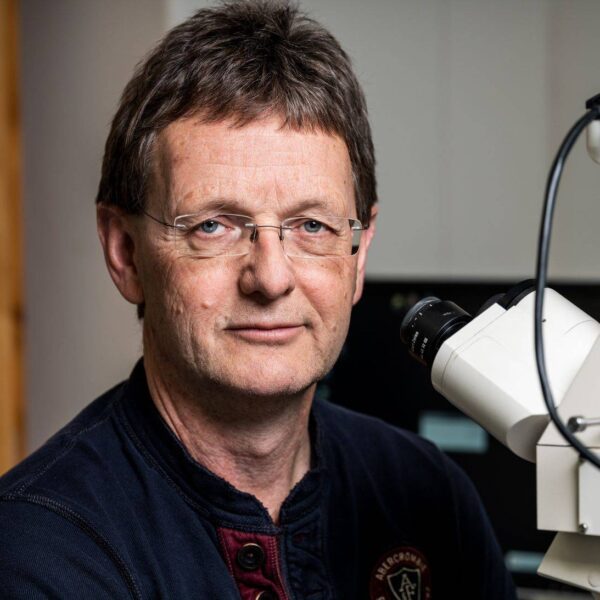

Andries Kalsbeek
Head of department
About Andries
Andries Kalsbeek did his Biology study in Groningen (1978-1984) and received his PhD from the University of Amsterdam in 1989. After his post-doc in Strasbourg (France; 1990-1992) he returned to the Netherlands Institute for Brain Research (NIBR) and joined the group of Ruud Buijs. In 2005 he became teamleader of the Hypothalamic Integration Mechanisms group at the Netherlands Institute for Neuroscience (NIN), from 2008 onwards he combined this position with a PI position in the Department of Endocrinology and Metabolism in the Amsterdam UMC. He was appointed full professor of Experimental Neuroendocrinology in 2012 at the University of Amsterdam. He received important grants, including 3 ZonMw TOP grants in 2008, 2015 and 2021 and was co-applicant on a number of important “clock” project grants, such as OnTime (STW), NeuroTime (Erasmus Mundus), TIMED (Diabetes Research Consortium) and BioClock (NWA).
Since his thesis defence his research has focussed on deciphering the output mechanisms of the hypothalamic biological clock, initially with a focus on hormone rhythms and the autonomic nervous system. After his partial move from the NIN to the Amsterdam UMC this focus broadened to also include the hypothalamic control of energy metabolism. Most important scientific question tackled throughout the years, using a multidisciplinary approach combining neuro-anatomy, systems biology, molecular biology and behavioral physiology, has been how circadian and metabolic information is integrated in the hypothalamus to understand the mechanisms involved in the circadian control of energy metabolism, and how their perturbations lead to pathologies like type 2 diabetes and obesity.
Other positions
– Professor, University of Amsterdam
– Treasurer European Biological Rhythms Society (EBRS)
Support our work!
The Friends Foundation facilitates groundbreaking brain research. You can help us with that.
Support our work